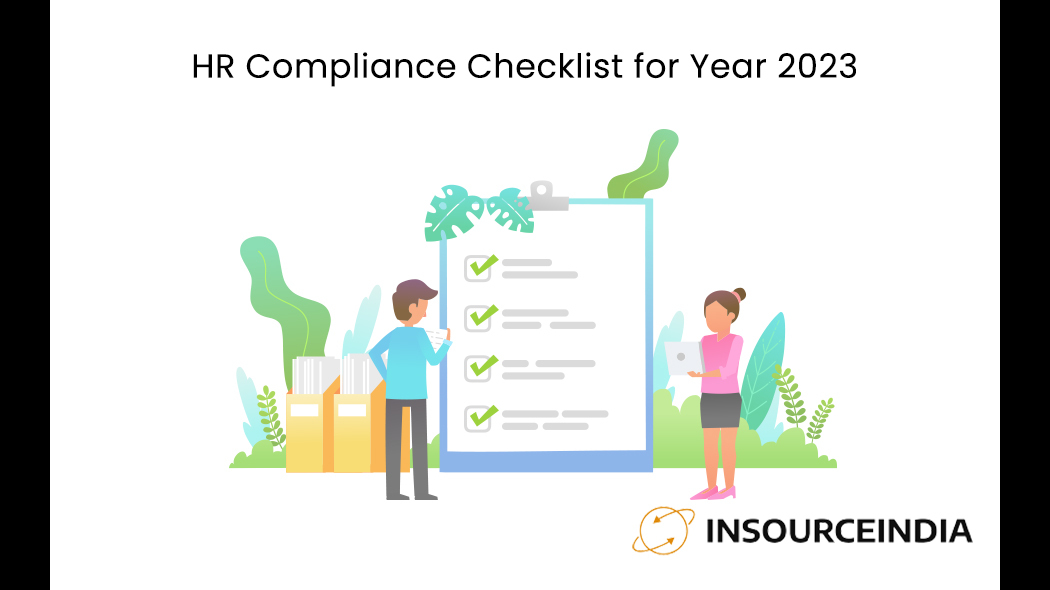Human resources (HR) compliance is of utmost importance for organizations operating in India. With a constantly evolving legal landscape, it is crucial for HR professionals to stay updated and ensure adherence to applicable laws and regulations.
This blog post provides a comprehensive HR compliance checklist for Indian organizations in 2023, categorized by different functions, to help HR professionals maintain legal and ethical workplace practices.
1. Recruitment & Hiring:
- Employment Contracts: Ensure that employment contracts are in place for all employees, outlining terms and conditions, including compensation, benefits, and notice periods.
- Equal Employment Opportunity (EEO): Comply with the provisions of the Equal Remuneration Act and the Sexual Harassment of Women at Workplace (Prevention, Prohibition, and Redressal) Act, promoting equal opportunity and preventing discrimination and harassment.
- Background Verification: Conduct background verification checks, including criminal record checks and educational qualification verification, with the applicant’s consent and in compliance with data privacy laws.
- Employee Provident Fund (EPF): Enroll eligible employees in the EPF scheme and contribute the required amount, as per the guidelines set by the Employees’ Provident Fund Organization (EPFO).
2. Employee Classification and Compensation:
- Minimum Wages: Ensure compliance with the minimum wage rates specified by the respective state governments and regularly update salary structures accordingly.
- Employee State Insurance (ESI): Register eligible employees under the ESI scheme and make the necessary contributions, providing them with healthcare benefits.
- Tax Deduction at Source (TDS): Deduct income tax at the source as per the prevailing tax rates and deposit it with the Income Tax Department within the specified timeframes.
- Bonus and Gratuity: Comply with the Payment of Bonus Act and the Payment of Gratuity Act, providing eligible employees with annual bonuses and gratuity payments.
3. Employee Benefits and Leaves:
- Maternity Benefits: Ensure compliance with the Maternity Benefit Act, providing eligible female employees with maternity leave, benefits, and a safe working environment.
- Provident Fund (PF): Deduct and deposit PF contributions from employees’ salaries, along with the employer’s share, within the prescribed timelines set by the EPFO.
- Paid Leave Policies: Establish and communicate policies regarding annual leave, sick leave, casual leave, and other forms of paid time off, in compliance with applicable state laws and company policies.
- National Pension System (NPS): Facilitate voluntary participation in the NPS scheme for employees who wish to contribute towards their retirement savings.
4. Workplace Policies and Compliance:
- Prevention of Sexual Harassment: Establish an Internal Complaints Committee (ICC) as per the Sexual Harassment of Women at Workplace Act, ensuring a safe and harassment-free work environment for all employees.
- Code of Conduct: Develop and enforce a comprehensive code of conduct, addressing ethical behavior, conflicts of interest, confidentiality, and professional standards.
- Shop and Establishment Act: Register the organization under the applicable state’s Shop and Establishment Act and comply with regulations related to working hours, weekly offs, and holidays.
- Information Technology (IT) Policies: Implement IT policies to protect confidential information, data privacy, and intellectual property rights, including acceptable use policies and data protection measures.
5. Record Keeping and Compliance Reporting:
- Statutory Registers: Maintain and update the required statutory registers, such as the Attendance Register, Wage Register, and Register of Advances, as specified by labor laws.
- Annual Compliance Returns: File annual returns and reports with regulatory bodies, including the Registrar of Companies (RoC), EPFO, and the Labour Department, providing necessary information within the prescribed deadlines.
- Employee Records: Maintain accurate and updated employee records, including personal information, employment contracts, salary details, attendance records, and performance appraisals.
- Internal and External Audits: Conduct regular internal audits to identify compliance gaps and rectify any issues. Cooperate with external audits conducted by government authorities or other authorized entities.
Adhering to HR compliance guidelines is essential for organizations in India to ensure legal and ethical workplace practices. By following this comprehensive HR compliance checklist for 2023, HR professionals can mitigate legal risks, foster a positive work environment, and build trust among employees. Regularly reviewing and updating HR policies and practices is crucial to staying compliant with the ever-changing legal landscape in the country.

